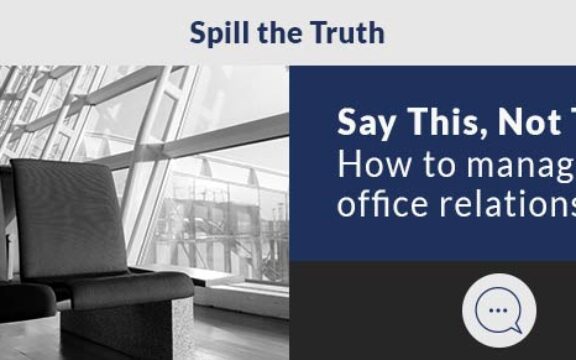When I was in corporate America, I never worked 40 hours in the office. Never. I still got promoted and I still got results. But I never made it a priority to sit at a desk for a certain number of hours a day. Did I have a lot of friends in the office? Not really. I endured looks of scorn as I glided out the door at 3 p.m and heard snide comments when I didn’t arrive until 10 a.m. some mornings.
But here’s the thing: I had international stakeholders and executives who traveled constantly. They sometimes needed a response from me in the middle of the night. I was always on call. So I adjusted my schedule accordingly. It would be inefficient to reach out to each of my hundreds or thousands of co-workers to let them know I’d been up at 2 a.m. writing talking points or addressing a crisis. Instead, I focused on results.
I shared this story during a full-day workshop I gave to a Fortune 500 company last week. After my talk, several people approached me about the demands they feel at their jobs, the number of hours they work and the number of emails they need to answer.
It’s easy to fall into the trap of working beyond 40 hours a week. Perhaps you’ve set unrealistically high expectations for yourself, or maybe you just don’t know how to (or want to) say no. Perhaps you stay late to please the boss. Or maybe – and this is the most troubling – you see yourself as the only one who can get a job done right.
Sticking to this routine can negatively impact your performance, reputation and overall happiness. It’s a fallacy that you need to work 50+ hours a week to be a respected business professional. No one envies that. What matters is results.
Here are some practical steps to help you regain control.
- Set boundaries. There are only so many hours in a day and only so many priorities that can be addressed. When encountered with a project request that you know you can’t meet, be clear about it. Say, “I want to make sure this project gets the attention it deserves. Is there another project of mine that can be placed on the back burner or should I look into delegating this task?”
- Develop your team. Trust that your co-workers can share the workload with you. If they’re not up to the task, invest in coaching or offer task-specific training.
- Take breaks. The world will continue to turn without your 24/7, 365-day efforts. Breathe, turn off your phone and go to sleep. You’ll be more effective when you return.
- Slow down. Give yourself four hours to respond to urgent emails and up to 48 hours to respond to non-urgent emails. Schedule an hour a few times a day to tackle emails and texts. It’s okay to let them pile up in between.
- Model these behaviors to others in your office. Demonstrate that quality work and impact are more important than hours in a chair. A quick email reply is okay, but a helpful, thoughtful and actionable reply a few hours later is even better.
Most importantly, you need to determine what matters most in your life and protect those things. The most respected leaders are revered for their results and reputations, not the hours they work.







